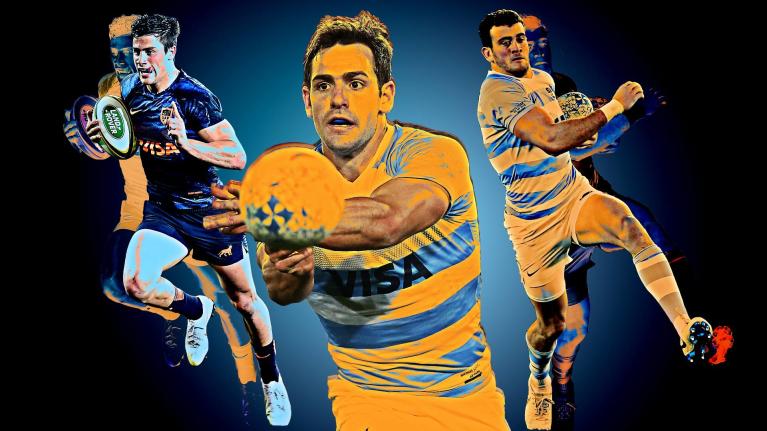The future of Argentina - Superpower or forever an Enigma?

The plight of Argentinean rugby has been one of the game’s most intriguing stories since the turn of the millennium.
The country has been the South American darling in a region that is rugby’s greatest growth opportunity. Argentina’s roll of over 100,000 registered players is producing players with athletic prowess and natural attacking flair to rival any nation.
The unbridled potential is undeniable; the Los Pumas could be a superpower of the game but could just as easily continue to be the enigma it has proven to be.
Going from an afterthought without a ‘home’, they became World Cup wonders placing third in 2007. The battle for a place in one of the world’s top competitions ensued to ensure the team could continue to play top-level international competition. After finding the door closed to the Six Nations they were let into the Rugby Championship in 2012.
Despite that breakthrough, they did not have a club team playing in SAANZAR’s Super Rugby competition until 2016. Their eligibility rules meant those who wanted to play for the Pumas had to stay home despite not having a suitable professional competition to play in.
This was not the ideal foundation for an annual competition against the old powers of the Wallabies, Springboks and the All Blacks. Nevertheless, early results were promising with growing competitiveness. Another strong World Cup showing in 2015 had the world on notice and their future looked bright.
However, the arrival of the Jaguares the following season coincided with an alarming slide for the national team winning just one game in the next two Rugby Championships and losing 21 of 27 games since the 2015 World Cup.
Head coach Daniel Hourcade, who had overseen Argentina since 2013, was on the chopping block. It may have been a case that Hourcade had taken this team as far as he could, as he explained to RugbyPass “the message is no longer getting through to the team, we’ve reached the end of a cycle.”
The same voice over and over again had seemingly lost its impact. He was sacked and replaced by Jaguares coach Mario Ledesma in August, a previous assistant to Michael Cheika’s Wallabies, which has given the Pumas the shot in the arm it needed.
In a rapid turnaround, the future the Pumas once promised is now showing again, a worrying sign for Northern Hemisphere teams ahead of next year’s World Cup.
This has been a breakthrough Rugby Championship under Ledesma and the historic win on Australian soil could be the tipping point for the side.
The downward trajectory of the Wallabies may have finally crossed paths with the upward one of the Pumas, the result on the Gold Coast symbolic of the state of the game in both countries, one in decline and one in growth.
For years, New Zealand fans have watched the Pumas put together a solid half of rugby, perhaps 50 minutes, before failing to stay with the All Blacks. The Wallabies have done it too, but without the flair and X-factor that the South Americans have.
They show unrefined and raw skills, with the kind of natural talent that can construct the sort of tries that leaves spectators in awe. An Argentina vs. All Blacks game now offers a far more entertaining spectacle now than a Bledisloe Cup match, but can’t yet offer the historical significance that Australia does.
The dire state of the Wallabies play shows a nation that has regressed, failing to cultivate skill-based play in the modern era. They have configured robots to play in rigid structures, removing autonomous decision-making from the player’s repertoire. This player must pass to this player and so on, regardless of what’s in front of them.
On top of that, the basic ball handling skills are far below the required standard and the small details required to implement structured attacking plans are missing.
The Pumas were on the other end of the spectrum, playing with freedom and daring enterprise without the strategic balance of structured play and, at times, sound decision-making. Which means their future promises so much more - if they can harness that talent, the ceiling is untapped.
There will continue to be challenges, such as the travel toll on many of the players who play for both the Jaguares and Pumas, which may also explain the dip in the national side’s results as their players adjusted to life in Super Rugby.
“That’s probably one of the biggest problems we have.
“Last season we travelled 186,000km so probably four times around the world. We’re used to that and it is our reality,” said Houcarde in November 2017.
That is also why the 23-19 win over the Wallabies is significant – it was on the road, showing the side is starting to get comfortable with the demands put on them.
They are still a long way off the All Blacks, who trot out an experimental lineup or ‘B’ side every time they play them, but they may have surpassed Australia. They need to back up their performances so far and finish strong with another win over Australia, as well as another competitive showing against the All Blacks.
If they do come away with their third and biggest scalp this weekend, it will show the doubters that they belong in the Rugby Championship once and for all, but this year should have already proved that.
Latest Comments
My name is Graham Paterson. I am coping fine . Ardie Savea and Moana Pasfifika deserved there victory. The outstanding David Havili was missed .I think , if you leave out Christian Lio-Willie , who has been so good. Best if Tom Christie starts with Ethan Blackadder and Cullen Grace. Mitchell Drummond too at 9. Some of those guys were short of a gallop against a fired up Pasifika.
Go to commentsTRUST AND RELIABLE BITCOIN, USDT RECOVERY EXPERS FOR HIRE - CONSULT RUDER CYBER TECH SLEUTHS
Go to comments